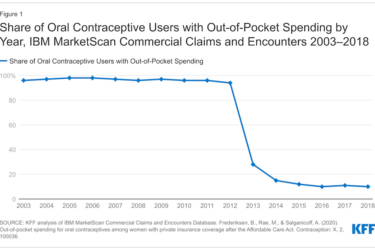A plan from the federal Centers for Medicare & Medicaid Services to eliminate protections for certain classes of drugs ran into stiff opposition on Wednesday when both Democrats and Republicans criticized the plan during a hearing of the House Energy and Commerce Committee.
Committee members questioned Jonathan Blum, principal deputy administrator of CMS, on the CMS plan to end the protected status for three classes of drugs (antidepressants and immunosuppressants in 2015 and possibly ending protected status for antipsychotics in 2016). Blum explained that CMS wants to foster competition and lower prices and that the proposal is not designed to limit the types of drugs that CMS covers, according to an article by Jennifer Corbett Dooren in The Wall Street Journal.
But perhaps the bigger issue involved whether the Part D proposal would allow CMS to get involved in price negotiations for medications. The Medicare Prescription Drug, Improvement, and Modernization Act of 2003, bars CMS from negotiating with pharmaceutical companies over the price of medications for Medicare beneficiaries. This provision of the 2003 law that established Medicare Part D, the prescription drug benefit, is known as the non-interference clause.
Lisa Gillespie of Inside Health Policy (free trial subscription available) covered this issue thoroughly, writing, “Congressional Republicans Wednesday repeated their view that the proposed changes would violate the non-interference clause. Health subcommittee Chairman Joseph Pitts (R-Pa.) said that the original intent of the clause has kept CMS from interfering with industry’s pricing negotiations and has helped reduce costs, and the proposed rule would violate the statute.”
Blum responded, saying, “We have no intention to negotiate price structure; the law is clear.”
This line of questioning may continue, particularly from Republicans who appear to want to make the Part D proposal a campaign issue for the mid-term elections later this year.
The other issue addressed Wednesday was why CMS would change the Part D program when it has been successful and popular. The journal quoted committee member Michael Burgess (R-Texas) saying, “Rather than continue a successful program and encourage innovation, CMS has chosen to ruin one of the only working parts in our current health care system.” Committee member Henry Waxman (D, Calif.), said, “I’d like to see the agency rethink its approach” on the proposal, the journal reported.
Blum explained that by ending the protected status for three classes of drugs CMS seeks to foster competition and lower prices. The proposal is not designed to limit the types of drugs that CMS covers, he said.
Blum also said the changes are needed to head off higher costs from expensive new biologic therapies and rising subsidies for insurers and lower-income consumers, according to a Reuters article by David Morgan.
On this point, Gillespie quoted Blum saying, “Part D is projected to spend faster than Part A and B in the next 10 years. We feel it’s our responsibility to propose changes to improve operations.” Part A covers hospital costs and Part B covers physicians’ services.
Patient advocacy groups have asked CMS to withdraw the proposal. And representatives of three such groups addressed the hearing today. They were Douglas Holtz-Eakin, a former director of the Congressional Budget Office who is president of the American Action Forum, which describes itself as a center-right policy institute. Also addressing the committee were Joe Baker, president of the Medicare Rights Center, and Carl Schmid, deputy executive director of the AIDS Institute. Holtz-Eakin and Schmid were sharply critical in their comments and Baker was more nuanced.









